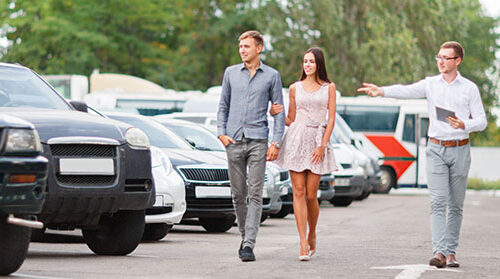Appetite increases for used cars

Seven out of ten consumers (70%) say that used cars have become more appealing purchases than new in the last month. This is according to the very first monthly Startline Used Car Tracker.
The high cost of new car prices is the number one factor mentioned behind this developing trend (47% of consumers), followed by not being able to afford a new car (25%) and used cars offering better value than new (24%).
The research commissioned by the motor finance specialist also shows a markedly increased propensity to purchase now among people already committed to buying a used car – more than half of those (53%) questioned plan to do so compared to last month.
Influencing factors over the used cars they are likely to choose are dominated by economic factors – with the top five answers being running costs (62%), cost of living (55%), inflation (28%), job security (25%) and the fact they are now covering fewer miles (25%).
The reasons chosen by respondents for changing their used car include their old car needing replacing (51%), just feeling like a change (41%), personal finances having improved (37%), buying a second or third car for fun (9%) and local clean air regulations (5%).
Petrol dominates likely consumer fuel choices (38%), followed by hybrid (27%), diesel (17%) and electric (16%). Those opting for a petrol or diesel car say that their reasons for doing so include electric vehicles being too expensive (47%) and trusting petrol and diesel technology (43%). Those choosing hybrids or electric say that electric power is the future (52%) and it is right for the environment (38%). Just 9% say that electric vehicles are now affordable.
Paul Burgess, CEO at Startline Motor Finance, said: “The results here show very clearly how the cost of living crisis is rapidly changing consumer perceptions of the cars they plan to buy, the reasons behind their choices, and their car use. Certainly, it looks as though there may be a shift away from new towards used, with an emphasis on more affordable and economical models. People are clearly worried about the direction of the economy and expect to change their motoring habits accordingly.








